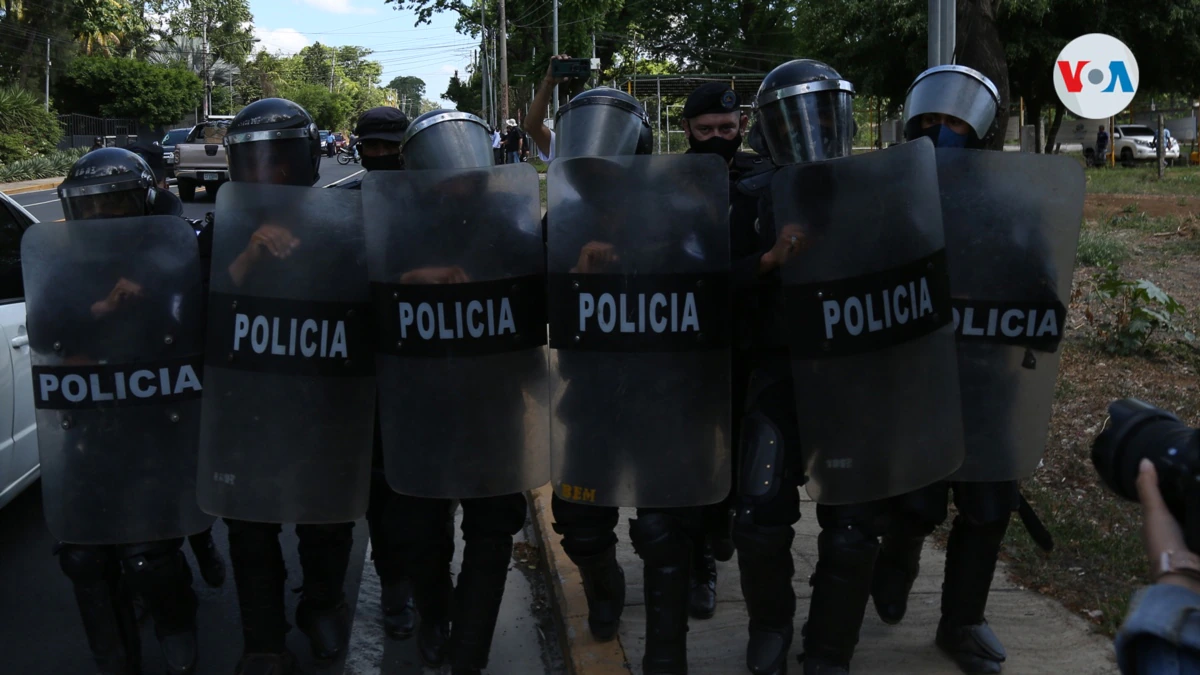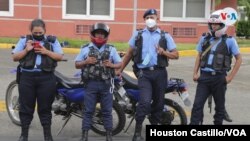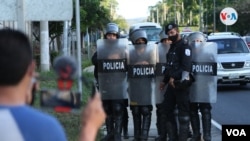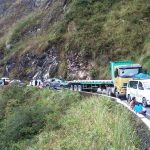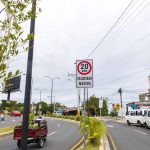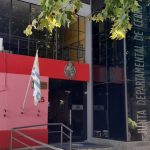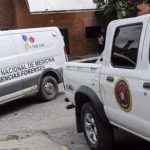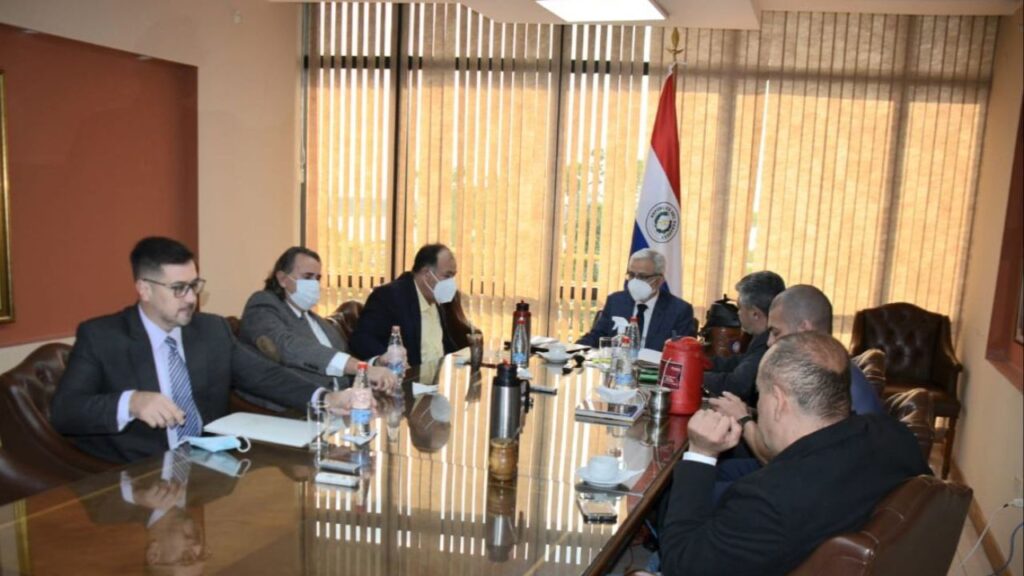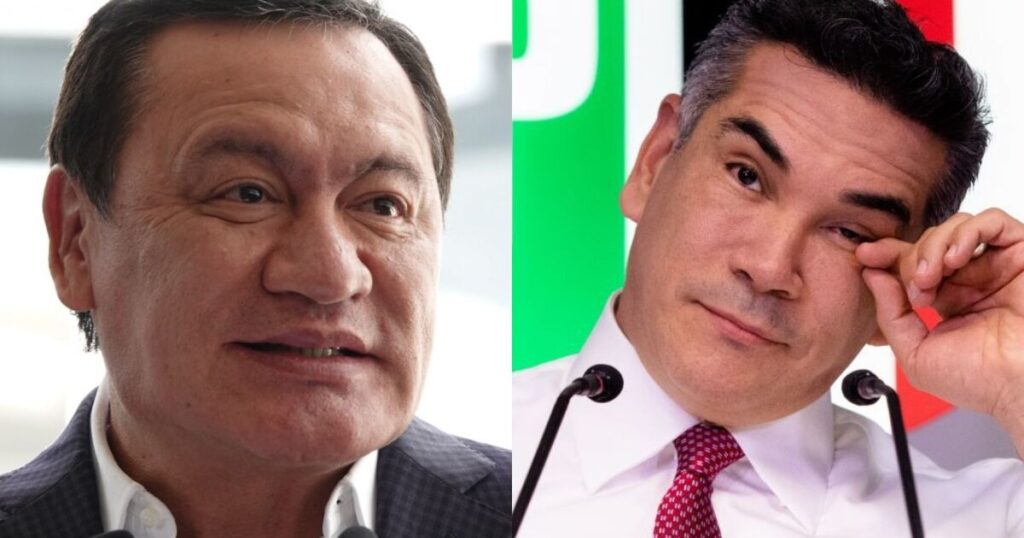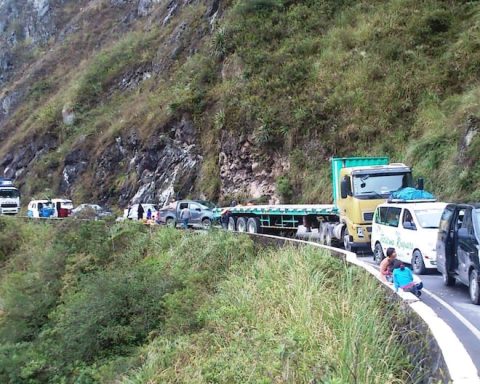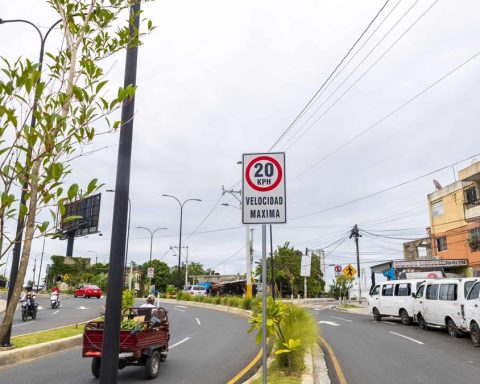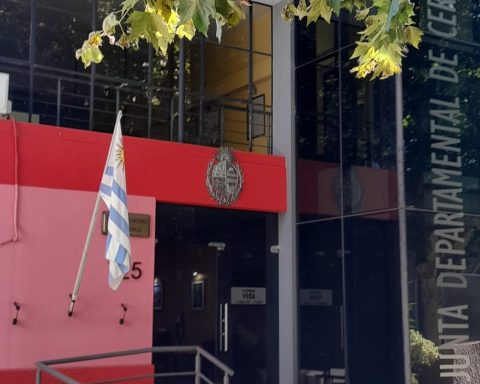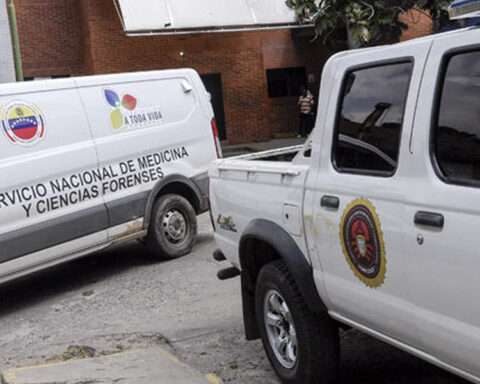Since President Daniel Ortega came to power in Nicaragua in 2007 to date, the number of officers that make up the ranks of the National Police has almost doubled, according to official data published in the Statistical yearbooks of the institution.
However, the citizen’s perception of security decreased, according to the analysts consulted, who argue that the police forces have been used for the sole purpose of strengthening Ortega’s power. Currently the institution is classified as “the repressive arm” of the government and the official in charge of the organization is sanctioned by the United States.
When Ortega assumed power in 2007, the members of the National Police were barely 9,290 people. Thirteen years later, in 2020, the figure increased to 16,909 members.
“The increase in police officers is due to acts of political persecution, but also espionage and siege of the Nicaraguan population,” he explained to the voice of america the lawyer Braulio Abarca, of the Nicaraguan Never Again Human Rights Collective.
“The increase in police officers is due to acts of political persecution, but also espionage and siege of the Nicaraguan population,” he tells the voice of america the lawyer Braulio Abarca, of the Nicaraguan Never Again Human Rights Collective.
The lawyer mentions that the aspiring police officers “do not even study for one year at the corresponding academy” to perform their duties, but rather “go through express courses in which the cadets come out without any type of information based on human rights, but rather ways of how to punish people or carry out acts of torture”.
The requirements to be a police officer in Nicaragua are minimal. For example, you must be between the ages of 18 and 30; a height between 1.60 meters in men and 1.55 meters in women; and a low academic level (sixth grade approved).
Ex-police: “They pay treason with jail”
Julio César Gallegos is a former police officer in exile in Costa Rica for just over a year. He narrates that after leaving his position in 2018 he was imprisoned for months. According to his testimony, the time in prison followed the indictment of different charges, including terrorism and organized crime.
Gallegos worked six years for the National Police in the special forces division of the DOEP (Directorate of Special Police Operations). Later he served as an escort in El Carmen, which is the residence of the Nicaraguan president.
“I had been sentenced to 25 years in prison, but I got out under the amnesty approved at the time,” the 33-year-old former police officer told the newspaper. voice of america, and affirms that after that it was not easy at all that what came. “The persecution and threats began.”
“In my case, I thank God because they still have me telling the story because deserting the institution is seen as a betrayal that is paid with high costs.”
An offer for people with few opportunities
Before joining the National Police, Gallegos, originally from the municipality of Diriamba, located about 42 kilometers south of Managua, worked in a free zone for a salary of just over 100 dollars. However, through a call in 2013 he learned that they were looking for new agents and he applied. His income improved.
“I was paid for the specialty later and a degree that I had. With all this, he was earning a little more than 314 dollars, ”says the former police officer who says he has found a job opportunity to improve his living conditions.
“We were the backbone of the repression because when the policemen in light blue couldn’t calm down a situation or it got out of hand, we, the riot police, came in to act, to violate rights or if it is to clean the streets. where there are roadblocks or disturbance to public order. That’s what we were trained for,” he said regarding the work of the division in which he worked.
The Police have not had independence, says ex-deputy
The history of the National Police has been marked over time in Nicaragua. It was formed two months after the triumph of the Sandinista Revolution in 1979 under a party line called the Sandinista Police, but officially constituted in 1980.
Later, in 1990, after the electoral defeat of the Sandinistas, the executive, then represented by former president Violeta Barrios de Chamorro, made efforts to “departarize and subordinate the police to civil authority” under the Organic Law of the National Police.
However, those efforts, according to critics, have gone overboard again with the return of Ortega to power, with whom the Police have taken on a political role based on the government’s interests.
The institution is currently headed by the Commissioner Francisco Díaz, President Ortega’s brother-in-law, who was sanctioned by the United States.
The arguments of those who support the performance of the Police
Francisco Bautista Lara, founder of the National Police, has a different view of the criticism of the institution and assured in a past interview with the VOA that “it continues to be a model Police in the region.
Regarding the criticism of Díaz for his closeness to Ortega, he mentioned that “Nicaragua is a big town.”
“Here in this country one ends up being a relative, that is, Nicaragua is a big town, that’s how Nicaragua works, in political and economic leadership you find kinship everywhere and that cannot be a conditioning factor,” he added.
On the other hand, he affirmed that the Nicaraguan Police at the regional level continues to have one of the best results in the fight against organized crime and terrorism.
“Here the panorama you have is a level of political tension and in part I think it is fueled by internal and external actors who are interested in disqualifying key government institutions,” he stressed.
More reviews
Contrary to this, the political analyst and former opposition deputy, Eliseo Núñez, considers that the independence of the institution as such “was a mirage” and never existed. He assures that the police intelligence was at the service of the FSLN and reported to Ortega.
“The police were never purged. On the contrary, they were given a space that they should never have had,” laments Núñez. He recalls that during the governments of former presidents Enrique Bolaños and Arnoldo Alemán they were able to verify Ortega’s control over the Police after losing power in the 1990s, in fulfillment of his promise to “govern from below.”
“There are controls that have not been removed and that have to do with the repression; So Ortega has to increase the number of officers and create a bureaucratic apparatus to give perks and money to those who were faithful to him,” concludes Núñez.
Connect with the Voice of America! Subscribe to our channel Youtube and turn on notifications, or follow us on social media: Facebook, Twitter and Instagram
